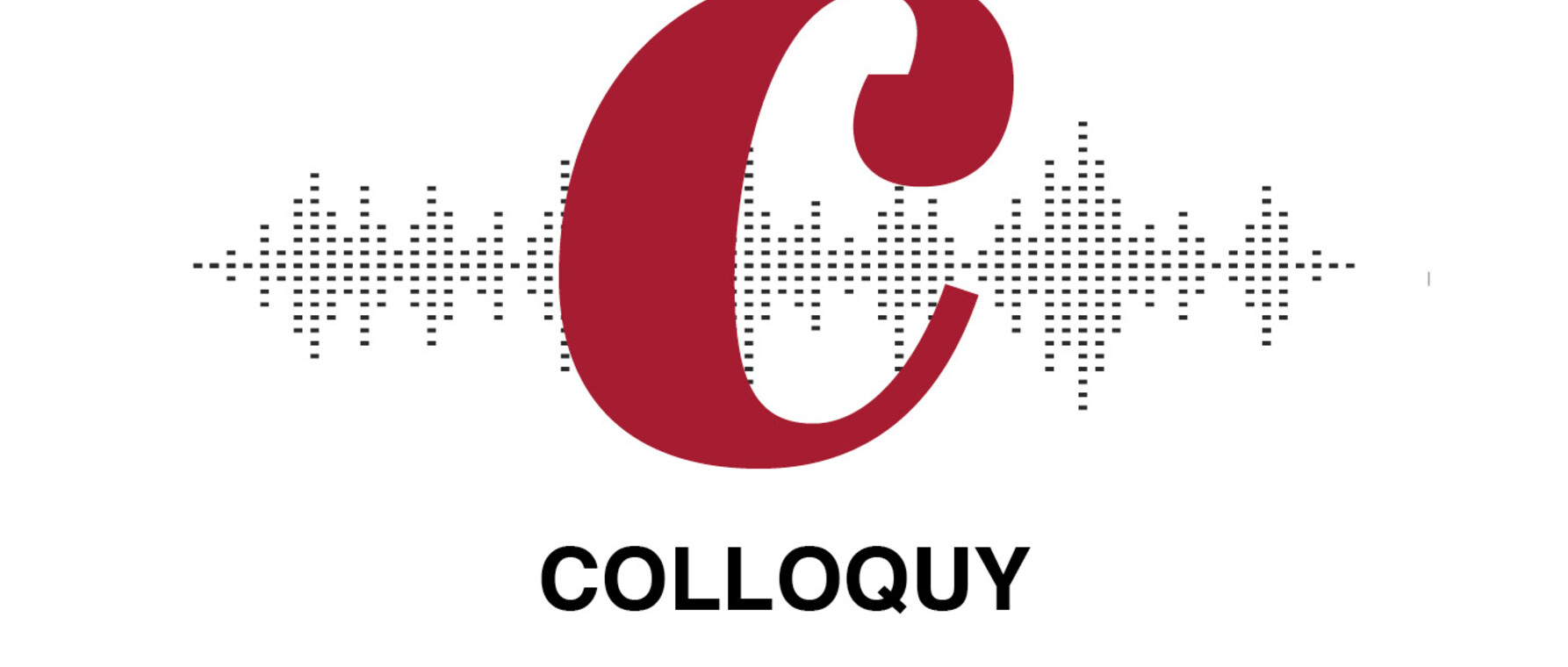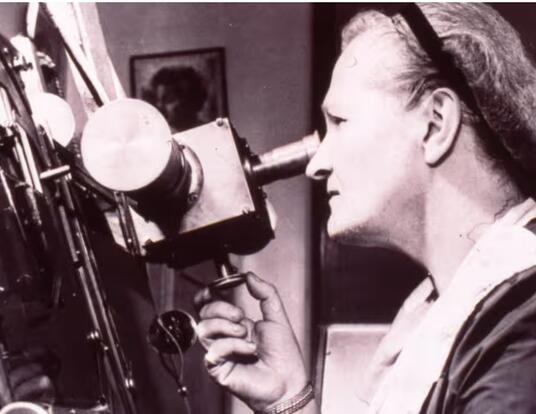Colloquy Podcast: Beyond the Massacres, Part I

In this episode of Colloquy, part one of a discussion about guns and public health in America. We want to move past the horrors of Uvalde—and El Paso, and Parkland, and Orlando, and Las Vegas, and Sandy Hook—and talk about the larger issues: too many gun deaths and injuries, too little training, information, and regulation. Later this month, in part two, we’ll focus on solutions. What can citizens, manufacturers, gun owners, and legislators in red and blue states do to reduce fatalities and trauma stemming from the misuse of firearms?
Leading us in this conversation is David Hemenway, professor of health policy at the Harvard T.H. Chan School of Public Health and director of the Harvard Injury Control Research Center. The author of five books, Professor Hemenway has written widely on injury prevention, including on firearms, violence, and suicide. He headed the pilot for the National Violent Death Reporting System, which provides detailed and comparable information on suicide and homicide in the US. In 2012 he was recognized by the Centers for Disease Control & Prevention as one of the “twenty most influential injury and violence professionals over the past twenty years.” Professor Hemenway got his PhD from GSAS in 1974.
This transcript has been edited for clarity and correctness.
Over 45,000 Americans died of gun-related injuries in 2020, according to the CDC. There are over 120 guns for every 100 people. That's the highest level of civilian gun ownership in the world. How strong is the relationship between those two facts? Does the prevalence of gun violence simply come down to too many firearms?
To a large extent, yes. If everybody was perfect all the time, if nobody ever made mistakes, if nobody ever got angry, if nobody ever got depressed, and everyone behaved perfectly, it wouldn't matter whether there were guns. But people are people. And the reason we have so many more gun deaths than any other high-income country per capita is because we have so many guns.
I teach at a public health school where there's lots of international students, and every one of them, they cannot understand the United States. They just can't understand how we allow what's going on in the United States with guns.
For example, if we compare the United States to all of the other high-income countries—Germany and France and Canada and Korea and Japan and Australia—and we just look at, say, the 5-to 14-year-olds. I was just looking at the state of K through 8. And I look at those because it's really hard to blame the victim, and there's so much victim-blaming.
A child in the United States has a higher chance that they will be homicide victim—a gun homicide victim killed with a gun then the children in any of these other countries. And it's not 50 percent higher, or twice as high, or five times as high, or 10 times as high. The last time we did the study, it, was 29 times higher. And it'll be even higher the next time we do our study using 2020 data. It's 29 times higher.
It's just like—it's beyond the pale. And they say, why don't the parents do something about this?
It's not like we have more depression. It's not like we have more crime or violence except for gun violence. But if you look at our robbery rates our gun—anything that's not gun-related, we're an average high-income country. But once you add guns, guns make hostile interactions lethal.
And so on average, we have about 20 times the rate of gun death as these other countries. Every one of them does so much better than we do because they have many fewer guns. But most important, they have many fewer handguns per capita and many fewer military weapons per capita, and they also have much, much stronger gun laws than we have. So they make it much harder for the wrong people to get guns.
Let me just ask a follow-up question about that. I mean, obviously, you've been studying this for decades. Someone might say, well, correlation is not causation. What does the data show to tie the rates of gun ownership to gun violence?
So there have been all different kinds of studies. There have been ecological studies where you look across states. And once you try to compare comparable states, the states which have lots of guns and weak gun laws do much, much worse than a state like Massachusetts. We have many, many fewer gun deaths, gun homicides. So we have fewer homicides, gun suicides.
So we have fewer suicides than comparable states which have more guns. And it's not like—we're not less depressed than these other—we're not less violent than these other states. There have been also case-control studies, where the evidence is overwhelming that if you live in a home with a gun, you are much more likely that someone in the home will die a violent death, three times more likely that someone in the home will die of a suicide, and much, much, much more likely that someone in the home will die of an unintentional firearm death. And even much more likely that someone in the home will die of a homicide, particularly the women in the home, who may get killed by the husband or the boyfriend.
The focus is so often on gun deaths. What's the data just about injuries?
Well, what we know about injuries, the non-fatals, is that there are probably over 120,000 non-fatal shootings each year. But we don't know nearly as much as we should—the data come from mostly hospitals and emergency departments. And their data, they're collecting their data for billing purposes rather than for prevention. So we know very little about the circumstances.
We're not really sure how many unintentional firearm injuries there are. It's very hard to distinguish from the data, whether it's really an assault or unintentional. And we know almost nothing about the circumstances of these unintentionals. So what we really know most—or of any non-fatals. What we do know is that there are a lot of spinal cord injuries and traumatic brain injuries and other big problems due to non-fatal gun wounds.
A 2020 Gallup poll reported that 32 percent of Americans personally own a gun and 44 percent of Americans live in a gun-owning home. How has that number gone up or down over the decades and what's the impact on public health?
So two things—one, we think those numbers are a little high. Gallup always gets higher than, say, the NORC (nonpartisan and objective research organization) surveys out of the University of Chicago or the surveys that we do. But there's no question that about 25 percent of Americans are gun owners, or maybe 30 percent now, and up to 30 percent to 35 percent to 40 percent of gun-owning households.
What that really means is that the majority of adults don't own guns. Most of us are non-gun owners and don't live in gun-owning households. Over time, there has been—there was a really, in the last 40 years, for 37 of those years, probably, there was a decrease in gun ownership. There was an increase in the number of guns, but that was simply because people were owning more guns.
You have to realize that there's less hunting per capita than there used to be. There's probably less shooting outside in a range than there used to be. But the gun industry is selling guns more and more for defense and selling more and more different types of guns, which are military guns. The big difference is, 40 years ago, the majority of guns were long guns. And now, the majority of the guns are handguns. And handguns are what is more often used for assaults with handguns rather than long guns, and even for suicides.
The news media tends to focus on mass shootings and homicides, but those aren't really the main sources of gun deaths, are they?
No, not at all. But one of the things that happens is that it always makes the news if a lot of people are dying in one event. And so in other countries, when something like this happens, typically, they step back and think, “Oh, we've got to do something about the mass shootings. But we also—this is the time to think about what our gun policy should be.” And we really haven't done that as a nation. We've done that—the states in the US have done that, but not at the federal level.
The mass shootings are just a small percentage of the total people either getting killed or wounded. On an average day, well over 100 people are being killed. And even in these mass shootings, if—a horrible, horrible mass shooting might kill 20 people. And then that same day, probably 80 or 90 people were killed in other ways by guns. So yes, it's just the tip of the iceberg. But it is what gets attention, and it is typically a time to try to do something about it.
The other thing about mass shootings is they create a whole lot of fear. There's a real cost for the mass shootings. And you can see the school shootings. Now, we have lockdown drills in schools, which I think are just so traumatic for the students there. We have resource officers in school who, some schools, they do well, but other schools, they probably don't do so well. But you have guns brought into school. And it's like, is this what we really want?
There's been at least some press over the last month about the students returning to the school in Uvalde, Texas, where there was the horrible mass shooting. Do we not think enough about the psychological trauma of gun violence?
I think in rich areas, we think enough, but clearly, the psychological trauma of gun violence is concentrated in poorer areas in the United States, where there's more gun violence. And we typically don't attend to the trauma occurring to not only the students there but the families there, the brothers, the sisters, really, to the whole community.
I think there are communities in the United States which are just traumatized by the amount of gun violence that they witness, and they hear about, and they know about, and the funerals they attend. And they don't get nearly enough attention from mental health providers.
You mentioned earlier in the conversation that it was difficult to know exactly how many gun-related, non-fatal injuries there are out there because they're collecting the data for insurance but not for prevention. What kind of access to researchers have to data about gun ownership and injury?
Well, we're doing a little better. One of the things I've done that I'm very proud of and I only played a small part in was helped create the National Violent Death Reporting System, which is finally now in 50 states. Any time there's a violent death, a suicide, a homicide, an unintentional gun death, there's, like, 120 pieces of information collected consistently and comparably. So we're starting to get to know more and more about the circumstances of these gun deaths. Also, the system is great because there's the narrative from the police and from the medical examiner coroner. So we really have the story of what happened.
But that's not just the deaths. As I mentioned, the non-fatals, we have no stories. We don't even have really good, reliable data, which is too bad, and we're trying to do much better. We have no good data about gun ownership at the state level.
Was it the case that for many years, there was an effort, at least on the federal level, to prevent the collection of data? And why was that?
It really, I think, had to do with the early 1990s. The Centers for Disease Control (CDC)—it was really only in the 1980s that, finally, injury was recognized as a public health problem. I mean, here, we have a situation where the leading cause—not only the leading cause—most people who die before the age of 40 in the United States die of an injury rather than a disease, and yet [injury] was not part of our public health approach. We weren't even thinking about that. And finally, in the 1980s, we started to say, “OK, CDC, we should have a small—at least an area talking about, thinking about injuries, researching injuries.”
And one of the early things the CDC did was they said, “All right, we're going to look at not only injuries, but of course guns,” at that time, was the second leading cause of injury death. And they gave money for research. And the researchers, not surprisingly, the data showed that a gun in the home was not a safety device, but it was increasing the risk of everybody in the home.
And in 1994, I think it was, when the Gingrich revolution happened. The Republicans took over Congress, and they were beholden, in part, to the National Rifle Association. And they went after the CDC. And what they tried to do was eliminate the entire CDC, I think. And then if they couldn't do that, to eliminate at least gun violence research. And they couldn't quite do that, but they found that the CDC was spending $2.6 million on gun issues. $2.6 million is nothing for a nation as large, as rich, as we are. But they immediately cut $2.6 million from the CDC budget. And so that was really a shot across the bow. And CDC—and they also passed laws making it very difficult for the CDC to get information, or anyone to get certain information.
But CDC, for over two decades, at least maybe 25 years, stopped doing any research on firearms. Indeed, I was at lots of meetings of injury people and firearms people, and for more than two decades, nobody at CDC would even say the word guns or firearms, they were so afraid. And that's changing a little bit, which is nice. There's finally a little bit of money, but it's still not nearly commensurate with the size of the problem.
Gun rights advocates say frequently that guns make people safer. I was reading a piece recently by a defender of gun rights who pointed to information from the Justice Department's National Crime Victimization Study that estimated tens of thousands, maybe hundreds of thousands of Americans use their guns every year for self-defense. That's most often, they say, by showing their weapon or saying "I'm carrying a gun," rather than actually firing one. So does the fact that so many people own firearms in the United States prevent bloodshed and suffering?
I think there's a rare occasion when that's true. There's no question of that. But on average, that's not the case at all. Otherwise, if guns made us safer, we'd be the safest high-income country when we are just the opposite. We are by far the most dangerous to live in high-income country.
What we know is not a lot about self-defense gun use. We've done a lot of studies about it. But there's still so much to learn. There's no evidence that—there's no good evidence, anyway—that a gun makes you safer. We know, net, a gun in the home makes the home much less safe. But could there be circumstances where a gun made it safer? It's possible. The evidence suggests—and it's not good evidence—that maybe having a gun makes it a little less likely that you'll lose property. So maybe a little less likely that someone outside your house might steal your car if you run out and start shooting at them. But on the other hand, you might kill some teenager for no reason—or little reason. But that's the potential benefit.
But in terms of the net, it's just not even close. Because—and again, guns, it's not just being killed and wounded with guns. It's also that guns are used for intimidation a lot, not only by criminals who intimidate you for you to give them money but also in domestic violence and intimate partner violence, guns are used in intimidation continuously. And a gun in the home is an incredible risk factor that a battered woman's going to be killed.
One person's self-defense might be another person's intimidation.
Yeah. And it's very hard—we've looked at a lot of what little data there is, and we've collected data on self-defense, and we've read news stories and tried to summarize them, and we've done surveys. And we're the only people, I think, who do surveys who then ask the people to tell their stories about what they considered self-defense. And these are one-sided stories. And most of the incidents seem to be escalating arguments where it's really difficult to figure out who was the perpetrator and who was the victim or were they both—just got angry. And that's not a good situation. That's a terrible situation.
When you look at the goods and the bads in terms of public health from guns, there are a lot of clear bads, where guns are used in crime, where guns are used in suicides, when there are gun accidents, and when there are mass shootings, and when there are gangs and guns, and so forth. There may be some good in terms of self-defense, but there's also some bad in terms of supposed self-defense.
And when you add it all up, you have huge amounts of clear situations where guns are harmful to public health, and then you have the self-defense gun use, which is sometimes harmful, sometimes beneficial. And the evidence is just overwhelming that the more guns in society, the worse it is for public health, and that in the home, if you have a gun, it's going to increase the likelihood that something bad will happen.
Now, one of the things I always try to emphasize in injury prevention is that just because you see big numbers, like, oh, 120 people dying each day from guns, we live in a country which is enormous—340 million people. And so the average person, it's not like, oh, if you have a gun, somebody in your home is going to commit suicide with a gun. And so people will say, oh, we lived our whole life with a gun in the house and nothing bad happened. And that's very plausible. It's what happens most of the time.
What having a gun does is increase your risk, say, for suicide by three-fold. But that means over a 40-year period, instead of having one-half of one percent [chance of] someone dying, you have a one and one-half percent [chance]. And that's still pretty low. But it means that when you look at who's dead, it's people in gun-owning households.
And it's the same way, I think, wearing a bike helmet or having your seatbelt. When I was young, most people didn't wear seatbelts and most of us survived. But we've reduced motor vehicle deaths by 80 percent to 90 percent, in part, because people are wearing seat belts all the time. But it would be great if we regulated gun ownership and gun carrying the same way—at the same level we did with cars, or at the level that every other developed country does with guns. I mean, it's just incredible.
To the extent that people who are supportive of gun rights do want to do something, the focus is often on mental health. How much of a problem is that really when it comes to guns?
Well, what the evidence indicates is that people who have mental health problems are more likely to be victims of gun violence than perpetrators of gun violence. There are certainly certain types of mental health problems where you don't want the person to have the gun, including if you're addicted to alcohol, which is considered a mental health problem. But for most mental health problems, the answer is, that's not going to make a difference.
We should do something about mental health in the United States. We don't have a very good system for treating most people who have mental health problems. But it's not going to have much effect, if any, on our gun violence problem. Again, there are so many things we can do to try to reduce violence in the United States. Like the other developed countries, we have violence. Like the other states, Massachusetts has violence. But what leads to so many deaths is the easy availability of firearms in the United States.
The Colloquy podcast is a conversation with scholars and thinkers from Harvard's PhD community on some of the most pressing challenges of our time—from global health to climate change, growth and development, the future of AI, and many others.
About the Show
Produced by GSAS Communications in collaboration with Harvard's Media Production Center, the Colloquy podcast continues and adds to the conversations found in Colloquy magazine. New episodes drop each month during the fall and spring terms.
Talk to Us
Have a comment or suggestion for a future episode of Colloquy? Drop us a line at gsaspod@fas.harvard.edu. And if you enjoy the program, please be sure to rate it on your preferred podcast platform so that others may find it as well.
Get the Latest Updates
Join Our Newsletter
Subscribe to Colloquy Podcast
Simplecast





